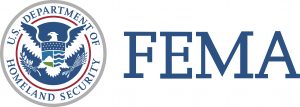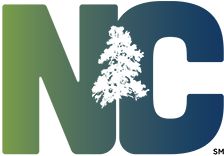Avoid Disaster-Related Scams and Fraud
Avoid Disaster-Related Scams and Fraud

Release date: October 17, 2016
Release Number: NR 001
As North Carolina residents work to recover from the recent flooding resulting from Hurricane Matthew, they should be on guard for and report suspicious activity of potential fraud and scam artists, identity thieves and other criminals who prey on survivors. The following are a few common post-disaster fraud practices:
Fraudulent phone calls or visits: Individuals claiming to be from FEMA and who do not have proper FEMA photo identification.
- Survivors will be asked to provide their Social Security number and banking information only when registering for FEMA assistance. They should never give this information to contractors.
Fake offers of federal aid: A phone or in-person solicitor promises to speed up the insurance, disaster assistance or building-permit process for a fee. Other scam artists promise a disaster grant and ask for large cash deposits or advance payments in full.
- Federal workers do not solicit or accept money.
- FEMA and SBA staffers will never charge applicants for disaster assistance, inspections or for assisting individuals fill out applications.
- If in doubt, survivors should not give out information.
Phony housing inspectors: If home damage is visible from the street, an owner/applicant may be especially vulnerable to fraudulent housing inspectors who claim to represent FEMA or the U.S. Small Business Administration (SBA). Applicants should ALWAYS:
- Ask to see the inspector’s identification badge. A FEMA or SBA shirt or jacket is not proof of someone’s affiliation with the government. ederal employees and contractors carry official photo identification.
- FEMA inspectors will already have applicants’ nine digit registration number.
- FEMA inspectors will never require banking or other personal information.North Carolina residents should also be aware that FEMA housing inspectors verify damage. They do not hire or endorse specific contractors to fix homes or recommend repairs nor do they determine your eligibility for assistance.
Fraudulent building contractors: Disasters also attract fraudulent contractors who offer to begin work immediately and request a cash advance payment. When hiring a contractor:
- Residents should only use licensed local contractors who are backed by reliable references and get written estimates from at least three contractors that include the cost of labor and materials. They should also read the fine print.
- Residents should insist that contractors carry general liability insurance and workers’ compensation. If he or she is not insured, you may be liable for accidents that occur on your property.
- Don’t pay more than half the costs of repairs upfront.
Bogus pleas for post-disaster donations: Dishonest solicitors may play on the emotions of disaster survivors. These solicitations may come by phone, email, letter or face-to-face.
- Residents should verify legitimate solicitations by asking for the charity’s exact name, street address, phone number and website address, then phone the charity directly and confirm that the person asking for funds is an employee or volunteer.
- Residents should not pay donations with cash.
- Residents should request a receipt with the charity’s name, street address, and phone number.
Unfair Price Gouging: North Carolina residents should also be on the lookout for price gouging by gas stations, hotels and other businesses serving disaster survivors in the state.
If you suspect someone is perpetrating fraud, call the FEMA Disaster Fraud Hotline at 866-720-5721, your local police department or the North Carolinas Fraud Hotline at 877-5-NOSCAM.
###
As the true devastation of Hurricane Matthew is becoming evident, Wayne Community College’s priority is its people.
“Our central concern is the condition of the college’s students, faculty, and staff,” said Dr. Thomas A. Walker Jr., the college’s president. “We are reaching out to them to see how they have fared through this storm and how we can help them move forward.”
“Wayne Community College weathered the storm structurally very well,” Dr. Walker said. “Maintenance and grounds crews have made certain that our facilities are ready, but we made the decision not to resume operations until it was feasible from a human standpoint.”
The college is set to reopen for students on Thursday, Oct. 20. It will return to full operations on a normal schedule that day and Friday, Oct. 21 but will be closed Saturday, Oct. 22.
Tuesday and Wednesday, Oct. 18 and Oct. 19 will be an optional work days for employees.
Dr. Walker also said that the college will actively assist the county’s emergency management officials and leadership with disaster recovery processes.
“Wayne Community College has many resources that we are eager to make available to agencies that are aiding our county,” Dr. Walker said. Numerous college-affiliated individuals are volunteering in governmental and nonprofit efforts, he noted.
“This college is an integral component of Wayne County,” Dr. Walker said. “We have a role to play in the recovery of not only our own employees and students, but also the community beyond our campus.”
Tips for Cleaning Your Home after Hurricane Matthew

Release date: October 14, 2016
Release Number: DR-4283-FL NR 004
Residents returning to or repairing homes damaged by Hurricane Matthew should keep in mind that safety should always be their first consideration when inspecting and cleaning up buildings damaged by flood waters.
Below are a few simple guidelines to follow that will make the clean-up and salvage process safer and easier:
- Always wear protective clothing including long-sleeved shirts, long pants, rubber or plastic gloves and waterproof boots or shoes.
- Before entering your home, look outside for damaged power lines, gas lines and other exterior damage.
- Take photos of your damage before you begin clean up and save repair receipts.
- Your home may be contaminated with mold, which raises the health risk for those with asthma, allergies and breathing conditions. Refer to the Center for Disease Control for more info on mold: www.cdc.gov/disasters/hurricanes/pdf/flyer-get-rid-of-mold.pdf.
- Open doors and windows so your house can air out before spending any length of time inside.
- Turn off main electrical power and water systems and don’t use gas appliances until a professional can ensure they are safe.
- Check all ceilings and floors for signs of sagging or other potentially dangerous structural damage.
- Throw out all foods, beverages and medicines exposed to flood waters or mud including canned goods and containers with food or liquid.
- Also, throw out any items that absorb water and cannot be cleaned or disinfected (mattresses, carpeting, stuffed animals, etc.).
- Beware of snakes, insects, alligators and other animals that may be on your property or in your home.
- Remove all drywall and insulation that has been in contact with flood waters.
- Clean all hard surfaces (flooring, countertops, appliances, sinks, etc.) thoroughly with hot water and soap or detergent.
Before returning to your home, make sure you have the following items among your clean-up and salvage supplies: government-issued photo ID (driver’s license, etc.) and proof of address; bottled water and non-perishable foods; first aid kit; cleanser or hand cleaning gel; hygiene products and toilet paper; insect repellent and sunscreen; flashlights and extra batteries; camera or cell phone to document damage; a list of important phone numbers; and plenty of cash (ATMs may not work).
It’s also smart to create a back-up communication plan with family and friends in case you’re unable to call from your home or other areas affected by the hurricane.
If you haven’t done so already, report your damage from the hurricane to your insurance company and local emergency manager.
Tax Relief for Victims of Hurricane Matthew
Did you know the IRS offers special tax law provisions to help you recover financially from the impact of a disaster? Find guidance on disaster assistance and emergency relief, including how to amend tax returns or file an extension.
Important Notice: Additional Counties Eligible for Hurricane Matthew Tax Relief
The NC Department of Revenue issued an “Important Notice” dated October 13, 2016, that detailed State tax relief available to victims of Hurricane Matthew. The Important Notice identified 17 counties that had been designated as Disaster Counties.
Six additional counties have been designated as Disaster Counties since the Important Notice was issued. The additional counties are Dare, Duplin, Gates, Hyde, Jones, and Pender. The complete list of counties includes Beaufort, Bertie, Bladen, Columbus, Cumberland, Dare, Duplin, Edgecombe, Gates, Greene, Harnett, Hoke, Hyde, Johnston, Jones, Lenoir, Nash, Pender, Pitt, Robeson, Sampson, Wayne, and Wilson (collectively “Disaster Counties”).
Please see Important Notice: Tax Relief for Victims of Hurricane Matthew for further information.
If you have any questions about this Important Notice, call 1-877-252-3052 to speak with a customer service representative or write to Customer Service, PO Box 1168, Raleigh, NC 27602.
Hot Food Waiver Approved for Food and Nutrition Services Recipients

Release date: October 14, 2016
Release from NC Division of Social Services
The U.S. Department of Agriculture approved North Carolina’s request for a hot food waiver in all 100 counties, allowing Food and Nutrition Services (food stamps) recipients to purchase hot food prepared for immediate consumption from authorized Electronic Benefits Transfer retailers.
Under normal Food and Nutrition Services rules, hot food prepared for immediate consumption is not eligible for purchase at authorized retailers.
With the widespread damage caused by Hurricane Matthew, many citizens in North Carolina have been displaced from their homes. To accommodate all Food and Nutrition Services recipients impacted by the hurricane, the N.C. Department of Health and Human Services, and the Division of Social Services have requested and received approval for the hot food waiver across the state.
EBT retailers are currently updating systems to authorize hot food purchases. All North Carolina EBT retailers will be able to authorize hot food purchases by Oct. 15.
The waiver will continue until Nov. 14, 2016.



